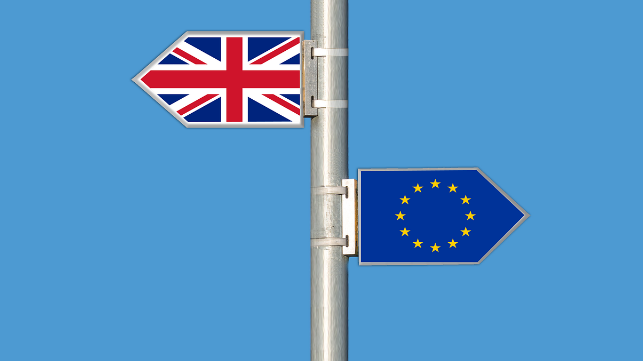British Ports Prepare for Brexit "No Deal" Outcome

The British Ports Association (BPA) has welcomed new Government proposals to help ensure maritime vessels and vehicles are able to travel to and from the E.U. post Brexit, following the publication of more of the U.K. Government’s advice on contingency planning for a “no deal” Brexit outcome.
A no-deal scenario would mean that the free circulation of goods between the U.K. and E.U. would cease on March 29, 2019. For U.K. businesses trading with the E.U., the impacts would include:
• businesses having to apply the same customs and excise rules to goods moving between the U.K. and the E.U. as currently apply in cases where goods move between the U.K. and a country outside of the E.U. This means customs declarations would be needed when goods enter the U.K. (an import declaration), or when they leave the U.K. (an export declaration). Separate safety and security declarations would also need to be made by the carrier of the goods (this is usually the haulier, airline or shipping line, depending on the mode of transport used to import or export goods).
• the E.U. applying customs and excise rules to goods it receives from the U.K., in the same way it does for goods it receives from outside of the E.U. This means that the E.U. would require customs declarations on goods coming from, or going to, the U.K., as well as requiring safety and security declarations
• for movements of excise goods, the Excise Movement Control System (EMCS) would no longer be used to control suspended movements between the E.U. and the U.K. However, EMCS would continue to be used to control the movement of duty suspended excise goods within the U.K., including movements to and from U.K. ports, airports and the Channel tunnel. This will mean that immediately on importation to the U.K., businesses moving excise goods within the E.U., including in duty suspension, will have to place those goods into U.K. excise duty suspension, otherwise duty will become payable.
The BPA has previously raised concerns that the impacts could lead to disruption at ports. This is particularly the case for roll-on roll-off port operators, which handle the majority of the U.K.’s trade with the E.U., and for whom a no-deal could be a serious challenge with new requirements at the border. 95 percent of the U.K.’s trade moves through its seaports and unlike many other countries, the U.K.’s ports are privately run.
The Chequers agreement and the Government’s Brexit White Paper Facilitated Customs Arrangement proposal offered a solution to the challenge of possible new customs and borders checks. The new papers include advice on a number of maritime issues such as seafarers certificates and safety and security notices for ship and cargo.
Chief Executive of the BPA, Richard Ballantyne, said: “We are now critically close to March 2019. Together with the advice published last month this brings home the potential of a no deal outcome. There is now limited time for ports and freight operators to prepare and without certainty it is still difficult for terminal operators to commit to investment in physical and digital infrastructure that might be needed to facilitate changing rules for trade.
“We have been involved in positive discussions with the U.K. Government and are hopeful that E.U. negotiators can accept a deal which rules out the need for new borders checks at ports, as is set out in the Checkers agreement. Anything less than this will have serious implications and need to be planned for, not only in the U.K. but also in the E.U.”
The Government’s no-deal advisory notices on trading with the E.U. states: “Negotiations are progressing well and both we and the E.U. continue to work hard to seek a positive deal. However, it’s our duty as a responsible government to prepare for all eventualities, including ‘no deal’, until we can be certain of the outcome of those negotiations.”
